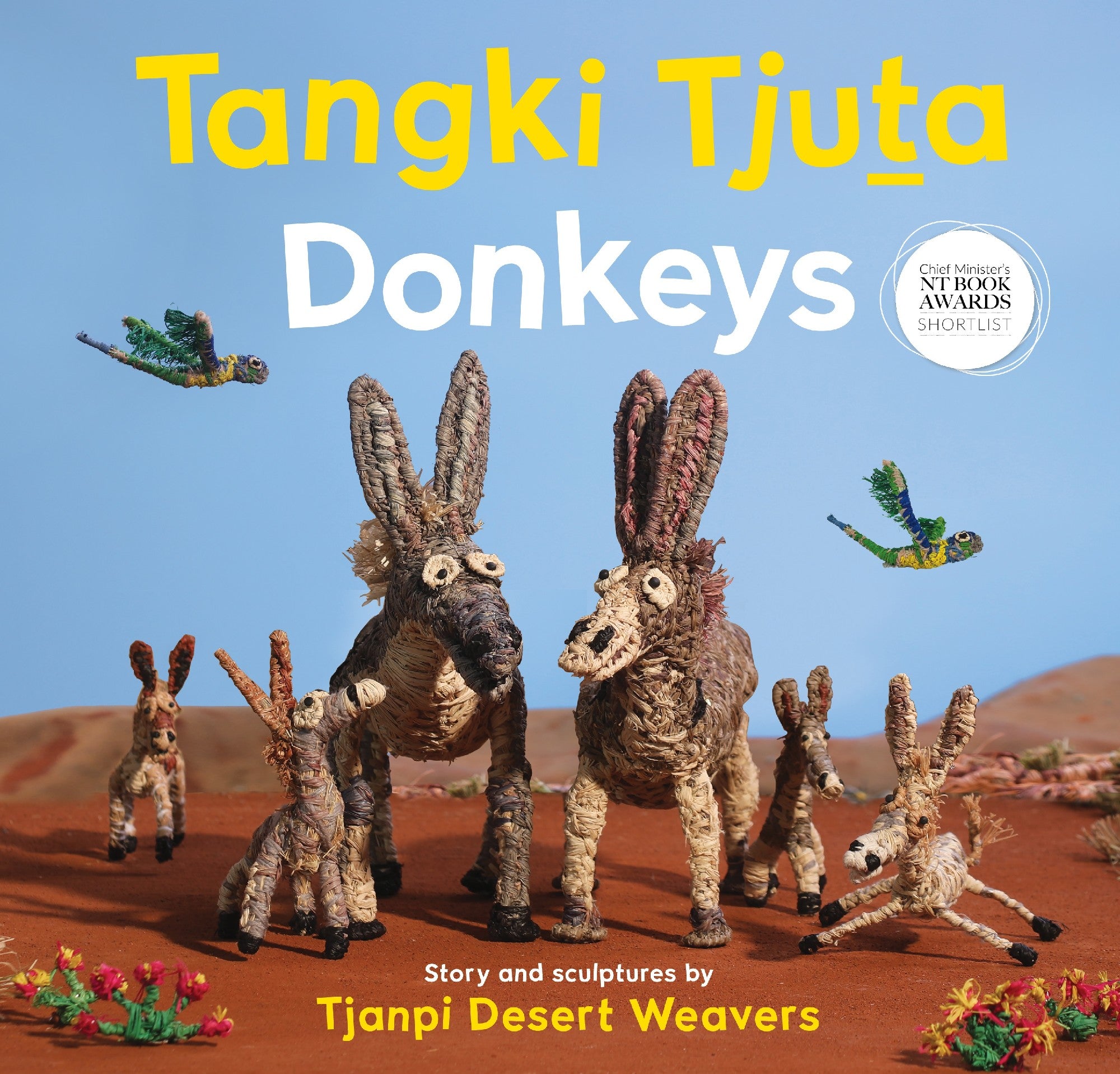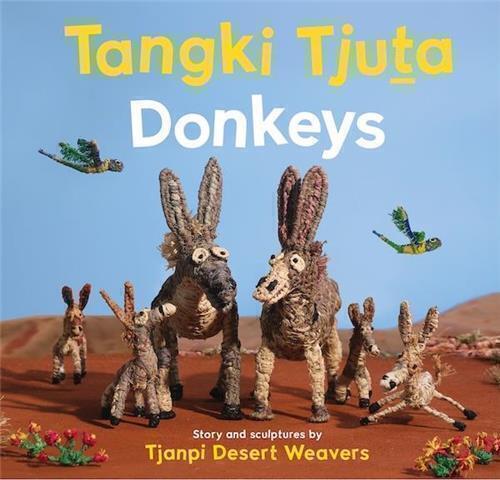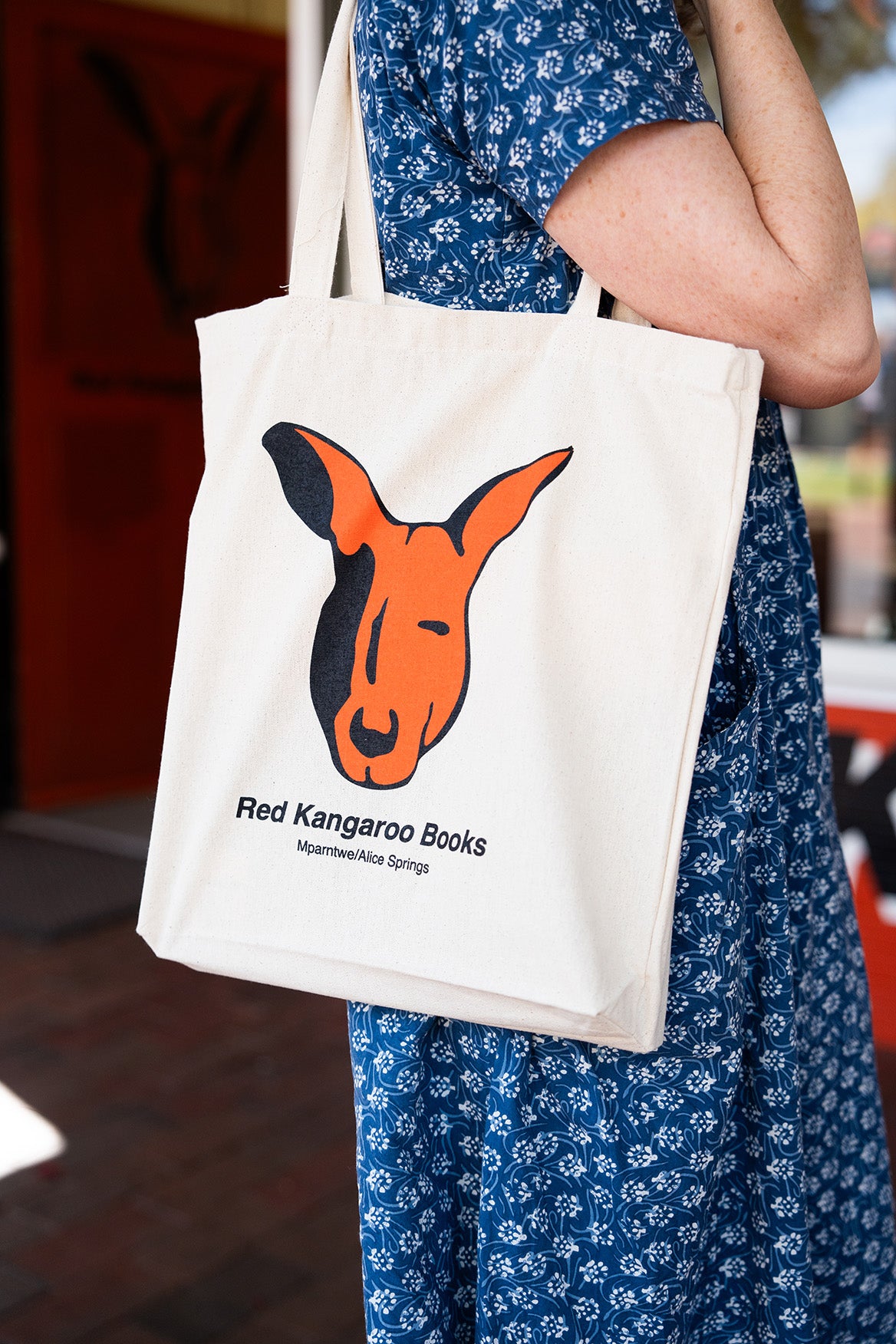

Tangki Tjuta Donkeys by Tjanpi Desert Weavers

Tangki Tjuta Donkeys by Tjanpi Desert Weavers
Sale price$25.00
Regular price (/)
About
Fresh, funny and highly original, Tangki Tjuta “ Donkeys is an endearing dual language story about how donkeys came to be a rich part of life for one Aboriginal community. Told in Pitjantjatjara and English. Long, long ago, we didn't have donkeys. We didn't have a lot of the things we have today. We didn't know donkeys existed. Our people used to walk with their camels and donkeys from Areyonga to Ernabella. They brought their donkeys here, and left them. Donkeys are malpa wiru, valuable friends and helpers in the families and desert community of Pukatja (Ernabella) in the APY Lands of northern South Australia. People set off on their donkeys for picnics and longer journeys, always returning home safely. Told in Pitjantjatjara and English and featuring the whimsical, distinctive sculptures that have made Tjanpi Desert Weavers famous, this dual language Australian story offers warm and humorous insights from an Anangu perspective. Author bio: The Pitjantjatjara text is by Tjunkaya Tapaya OAM and Imuna Kenta based on stories by Akitiya Angkuna Tjitayi, Imuna Kenta and Anne Karatjari Ward, and the English translation is by Linda Rive. The artworks featured in Tangki Tjuta - Donkeys are created by seventeen artists of the Tjanpi Desert Weavers, a social enterprise of Ngaanyatjarra Pitjantjatjara Yankunytjatjara Women's Council supporting 400+ women to create fibre art across the central and western desert regions of Australia. The artists made these sculptures from minarri, wangunu and intiyanu: desert grasses collected from their Lands. They bound the grass together around wire frames with string, wool or raffia. One of the donkeys was made from buffel grass, which was introduced by Piranpa (white people) and has become a weed. Tjanpi means desert grass in the Western Desert language.

